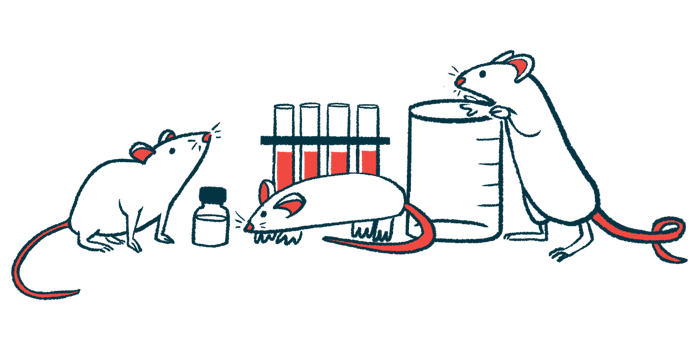Anew’s ALS gene therapy shows promise in mice
ANEW-202 may treat many age-related disorders, researchers say
Written by |

Anew Medical‘s targeted gene therapy candidate, ANEW-202, eased multiple mechanisms associated with amyotrophic lateral sclerosis (ALS), leading to improved muscle function and survival in a mouse model of the disease.
The gene therapy, licensed on an exclusive worldwide basis from the Autonomous University of Barcelona, in Spain, is designed to provide muscle and nerve cells with long-term supplementation of the protein secreted-Klotho (s-KL).
Referred to as the “anti-aging” protein, mice lacking s-KL age rapidly and soon develop diseases related to aging, whereas mice that over-produce the protein live longer.
According to Anew, studies suggest that s-KL may treat many age-related disorders, including dementia, heart disease, bone degeneration, kidney disease, and neuromuscular conditions such as ALS.
“Our s-KL gene therapy construct exhibits robust and prolonged bioactivity in this model of ALS and these results support ALS as the first indication in clinical trials of this new approach to treat ALS,” Joseph Sinkule, Anew’s CEO, said in a press release.
ALS is a progressive disorder marked by the loss of motor neurons, which are nerve cells that control voluntary movements. As a result, the brain’s ability to control muscle movement declines over time, and muscles become smaller and weaker.
ANEW-202 uses a modified and harmless virus to deliver the gene that encodes s-KL directly to muscle cells and those of the nervous system. Its goal is to have these cells produce s-KL protein in large quantities, potentially preventing motor neuron death and slowing disease progression.
Researchers evaluated the gene therapy in SOD1-G93A mice, an animal model of the disease that carries a mutation in the SOD1 gene. Such mutations cause up to 20% of familial ALS cases, and these mice recapitulate most ALS neuromuscular deficits, including low levels of s-KL protein in their muscles and spinal cord.
According to Anew, ANEW-202 treatment resulted in over-production of the s-KL protein in muscle and nerve cells in the brains and spinal cords of mice.
Compared with untreated control mice, treated animals showed a reduction in neuroinflammation and oxidative stress, two hallmark signs of ALS. Oxidative stress is a type of cell damage caused by an excess of highly reactive oxygen-containing molecules that cannot be cleared properly by the body’s anti-oxidant defenses.
Neuromuscular communication
This resulted in ALS treated mice having more connections between nerves and muscles, improved neuromuscular communication, and increased muscle strength and mass. Disease onset also was delayed, and treated mice lived longer than controls.
These preclinical data were presented at a European Society of Cell and Gene Therapy meeting.
The company now is planing to test ANEW-202 in the Profilin1 mouse model, which mimics the sporadic form of ALS that occurs in about 90% of patients.
“We look forward to expanding the testing of our lead candidate, ANEW-202, in the Profilin1 animal model of ALS that represents 90-95% of all human ALS cases called Sporadic ALS,” Sinkule said.
Because of its mechanism of action, s-KL gene therapy may treat other conditions related to neuromuscular degeneration, including multiple sclerosis (MS), muscular dystrophy, spinal muscular atrophy (SMA), and spinal cord injuries.
“The delivery and expression of the s-KL protein by the s-KL gene may be an effective therapy in this degenerative neuromuscular disease,” Sinkule said. “The data open up additional avenues for the use of ANEW-202 in an expanding array of other neuromuscular and motor neuron diseases such as multiple sclerosis, muscular dystrophy, myasthenia gravis, and rare diseases like Lambert-Eaton disease, Friedreich’s ataxia, and spinal muscular atrophy.”
“There may even be potential use in spinal cord injuries and peripheral nerve injuries, but clearly, ALS is our lead indication,” Sinkule added.






